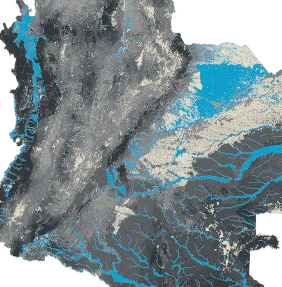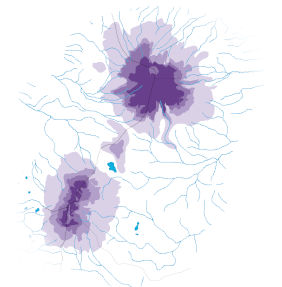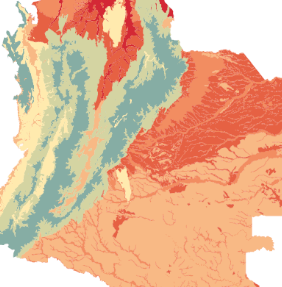In Colombia, 75.157 species have been reported according to the records of SiB-Colombia. However, it is believed that there are approximately between 200,000 and 900,000 species still unknown. This high species diversity offers opportunities to address the effects of climate variability and climate change impacts, but it also implies an important responsibility to manage and conserve all the biodiversity.
Biodiversity plays a significant role in relation to climate change. Its components (ecosystem diversity, species, and genes) are used to develop mitigation processes (actions to reduce and limit atmospheric emissions) and adaptation processes (planned and anticipatory actions to reduce vulnerability). Adaptation and mitigation strategies assess biodiversity and its ecosystem services for their intrinsic value including economic, cultural, and social criteria. From this perspective, the Humboldt Institute has been generating data and information about the relationship between biodiversity and climate change. Information can be used to connect science, policy, and society. The following sections highlight some of the contributions.



